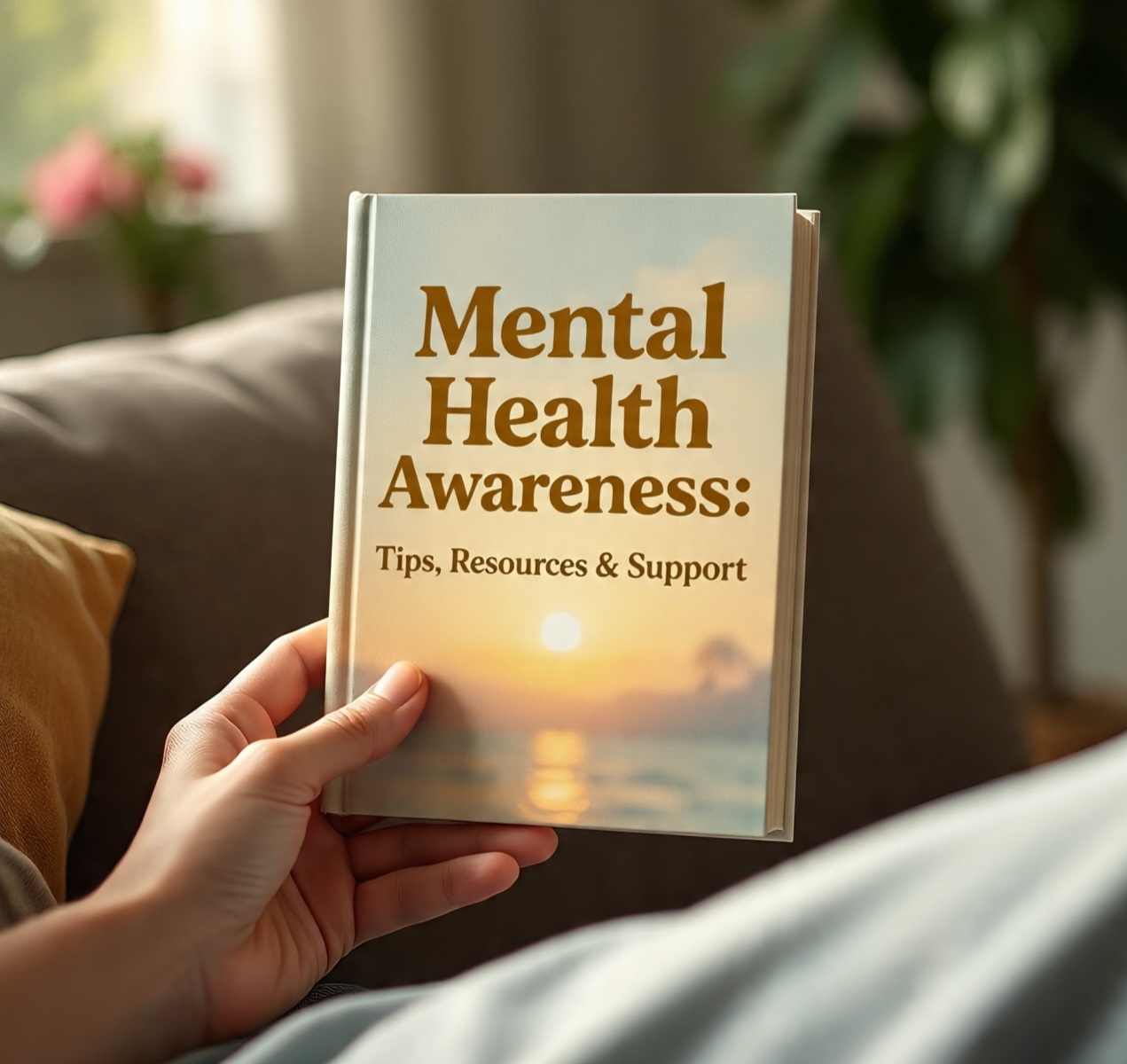Mental Health Awareness: Tips, Resources & Support
Introduction to Mental Health Awareness
Mental health awareness is more crucial now than ever. As we navigate the complexities of modern life, understanding our mental well-being has become a priority for many. Mental health isn’t just about avoiding illness; it’s about thriving and finding balance in everyday challenges.
Every one of us can face moments of struggle or anxiety, yet these feelings are often brushed aside as taboo topics. By fostering an environment where mental health conversations flourish, we create space for healing and support. Join us on this journey to uncover valuable insights into mental health awareness, explore common disorders and their symptoms, and discover practical tips to nurture your own well-being.
Together, let’s break down barriers and promote a culture that embraces mental wellness with open arms. The path to understanding starts here!
Importance of Mental Health
Mental health is a crucial component of overall well-being. It influences how we think, feel, and act in our daily lives. When mental health is prioritized, individuals can thrive personally and professionally.
Good mental health enhances emotional resilience. It allows us to cope with stress more effectively and face life’s challenges head-on. This fosters better relationships with others, creating a supportive environment for everyone involved.
Moreover, mental wellness plays a significant role in physical health. A sound mind contributes to healthier lifestyle choices, reducing the risk of chronic illnesses.
Awareness around this topic helps to break down barriers and encourages open discussions about mental struggles. By recognizing its importance, society can create an inclusive atmosphere where everyone feels valued and supported on their journey toward optimal mental fitness.
Common Mental Health Disorders and Symptoms
Mental health disorders can affect anyone, regardless of age or background. Understanding the most common conditions is vital for awareness.
Anxiety disorders are prevalent. Symptoms include excessive worry, restlessness, and difficulty concentrating. These feelings can be overwhelming and may interfere with daily life.
Depression affects millions worldwide. It often manifests as persistent sadness, loss of interest in activities, and fatigue. Individuals might also experience changes in sleep patterns or appetite.
Bipolar disorder presents unique challenges. Those affected cycle between extreme mood swings—intense highs known as mania and deep lows associated with depression.
Obsessive-compulsive disorder (OCD) involves intrusive thoughts that lead to compulsive behaviors. People may feel driven to perform certain rituals to alleviate anxiety.
Recognizing these symptoms is crucial for timely intervention and support options available for those struggling with their mental health.
Stigma Surrounding Mental Health
Stigma surrounding mental health remains a significant barrier for many individuals. Misunderstandings and stereotypes can create an environment where people feel ashamed to seek help.
Negative perceptions often stem from cultural beliefs or lack of education about mental health issues. This ignorance fosters fear and discrimination, making it difficult for those struggling to find support.
Many individuals internalize this stigma, believing they must cope alone. They may hide their struggles, which only exacerbates feelings of isolation and hopelessness.
Social media can both challenge and reinforce these stigmas. While platforms offer spaces for sharing experiences, they can also perpetuate harmful stereotypes through misinformation.
Breaking down these barriers requires open dialogue. Education plays a crucial role in reshaping attitudes toward mental health conditions. When we foster understanding, we pave the way for acceptance and healing.
Tips for Maintaining Good Mental Health
Maintaining good mental health is essential for a fulfilling life. Start by prioritizing self-care. Schedule time for activities that bring you joy, whether it’s reading, painting, or hiking.
Stay connected with friends and family. Social support plays a crucial role in your emotional well-being. Reach out regularly to check in on loved ones and share your own experiences.
Practice mindfulness techniques like meditation or deep breathing exercises. These can help ground you during stressful moments and promote clarity of thought.
Limit exposure to negative influences, including toxic relationships and excessive social media use. Curate your online spaces to include positivity and inspiration instead.
Don’t hesitate to seek professional help if needed. Therapy can provide valuable tools for managing emotions and developing coping strategies tailored just for you. Remember, asking for help is a sign of strength, not weakness!
Resources for Seeking Help and Support
Finding the right resources for mental health support can feel overwhelming, but there are many options available.
Start with local mental health organizations that offer counseling and therapy services. Many communities have clinics staffed by professionals who provide affordable care.
Online platforms like BetterHelp or Talkspace allow you to connect with licensed therapists from the comfort of your home. This flexibility makes it easier to seek help on your terms.
Support groups also play a crucial role in recovery. Websites such as NAMI (National Alliance on Mental Illness) offer listings of group meetings where individuals share experiences and coping strategies.
If immediate assistance is needed, hotlines like the National Suicide Prevention Lifeline are just a phone call away. Trained counselors can provide guidance 24/7.
Don’t hesitate to reach out; seeking support is an important step toward better mental wellness.
Conclusion: Ending the Stigma and Promoting Mental Health Awareness
Promoting mental health awareness is essential for fostering a supportive environment. Open discussions about mental health can help eliminate stigma and encourage individuals to seek the support they need.
Everyone experiences challenges, but understanding that it’s okay to ask for help can change lives. By sharing personal stories and educating ourselves, we create a culture where mental well-being is prioritized.
Mental health awareness isn’t just a trend; it’s an ongoing commitment. Whether through community initiatives or individual conversations, every effort counts in making mental wellness accessible for all. Together, we can break down barriers and nurture a society that values both emotional and psychological well-being.
